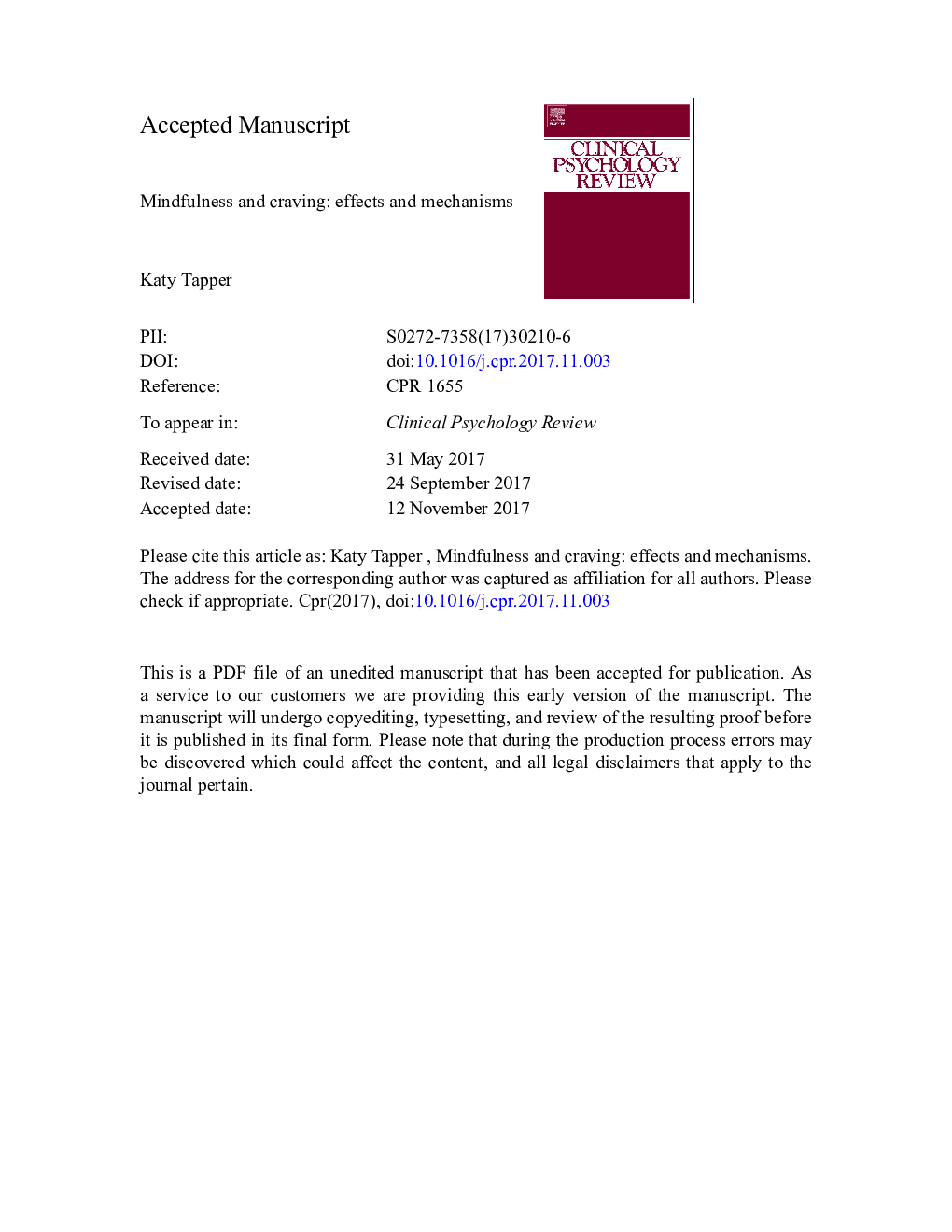| Article ID | Journal | Published Year | Pages | File Type |
|---|---|---|---|---|
| 7263554 | Clinical Psychology Review | 2018 | 67 Pages |
Abstract
Mindfulness meditation has a long tradition of being used to manage cravings. This paper reviews 30 experimental studies that have examined the effects of different types of mindfulness practice on cravings for food, cigarettes and alcohol. The findings are interpreted in light of relevant theories of craving. The studies show most support for the elaborated intrusion theory of desire and conditioning models. They suggest that whilst mindfulness strategies may bring about immediate reductions in craving, such effects are likely to stem from working memory load, and will not necessarily be superior to alternative strategies that also load working memory. Likewise, reductions in craving over the medium term may occur due to extinction processes that result from the individual inhibiting craving-related responses. Again, alternative strategies that promote response suppression may be equally effective. Nevertheless, a smaller number of studies show promising results where mindfulness exercises have been repeatedly practiced over a longer period of time. The results of these studies provide tentative support for Buddhist models of craving that suggest mindfulness practice may confer unique benefits in terms of both craving reduction and reducing the extent to which craving leads to consumption. Further research would be needed to confirm this.
Related Topics
Health Sciences
Medicine and Dentistry
Psychiatry and Mental Health
Authors
Katy Tapper,
